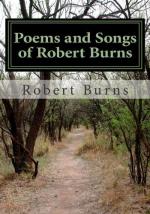|
This section contains 2,431 words (approx. 9 pages at 300 words per page) |

|
SOURCE: "Burns and Philosophy," in A Burns Companion, Macmillan, 1991, pp. 109–15, 391–99.
In the following excerpt Bold considers Burns's familiarity with the works and ideas of John Locke, David Hume, and other philosophers.
As a result of the obsequious Preface to the Kilmarnock Edition and Henry Mackenzie's influential description of the poet as a 'Heaven-taught ploughman' (CH, 70) Burns was regarded, by his early readers, as an ignorant man able, by some miracle, to produce poetry. An unsigned notice in the General Magazine and Impartial Review (1787) summed up the position: 'By general report we learn, that R. B. is a ploughboy, of small education' (CH, 88). In fact, by the time the Kilmarnock Edition was published, Burns had read not only the poetry of Pope and Shenstone, not only the fiction of Richardson and Fielding, but the philosophy of John Locke and Adam Smith. Before he left Lochlea in 1784, Burns had read...
|
This section contains 2,431 words (approx. 9 pages at 300 words per page) |

|


